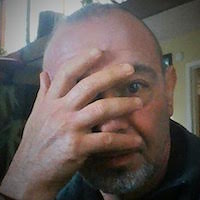Letting go Means Different Things to Different People.
I’ve read that it means letting go of: people, things, thoughts, situations, pain, identities or the past. To me, it’s none of those things. It’s something greater—something more intense. Something that changes everything.
In the Holy Gita, one of the Upanishads, it says renunciation of action will lead to liberation.
Renunciation of action means giving up the fruits of our actions. Renunciation of action is letting go of attachment to outcome. This is my definition of letting go.
It doesn’t mean to give up everything and wander the streets naked, as fun as that may sound. And it doesn’t mean to be a hermit in the woods, although if you’re called to do it, so be it.
Human beings have extraordinary intellects. We work toward goals and achieve incredible things. Renunciation of action means letting go of results. I can have goals, but the outcome is none of my business.
My life is an offering to the universe with no investment in the outcome.
For most of us who aren’t Mother Teresa, the thought of letting go is mind-boggling. To forget about the future is radical stuff. Especially since I’ve always followed some plan, hope or path, looking for a certain result. (The promotion, a date with the gal at the bus stop, inner nirvana.)
My life was built from a sequence of results. Who I am in the world is a result of my actions. For me, the concept of letting go was hard to get a handle on; it brought up all kinds of scary scenarios (I’ll become homeless, people will think I’m crazy—it’s the big unknown!).
I tried to use logic, telling myself nothing is permanent, that there’s no point in holding on. But the impulse to hold on is deeper than logic—it’s cellular. It’s probably encoded in our physical DNA as a survival technique.
Letting go is counter-intuitive.
To let go of results, whether in work or relationships, was huge. It was so big, I had to start small. When I decided to do this several years ago, I was a freelance computer programmer, working at a large brokerage firm that processed individual stock trades. I’d always wanted to work at this particular company because they paid well, but it was hard to get in there without previous experience in the complexities of the stock market. Finally, a friend of mine blazed the trail and got me in.
The company had a notorious reputation for being a difficult place to work. They didn’t think twice about getting rid of a contractor after one mishap. I wanted to do well. There was pressure. I worked long hours to meet deadlines. It was wearing me out.
At this time I was studying the Upanishads with a teacher, and we were discussing renunciation of action. So I decided to apply zero attachment to my job and I found out it’s extremely practical. I could focus without distraction. I worked hard, but I wasn’t driven by my work. There was no pressure, because there nothing to worry about. I enjoyed my work. I had fun.
Instead of a low-level churning due to expectations, I felt calm clarity. Solutions came because my mind was empty and open. My work improved tremendously. My bosses loved me.
Since I wasn’t driven in the same way, I had to rely on my intuition, which was sharper from a quieter mind. With zero attachment and an ear to my inner-perception, I was willing to take chances. At the highest point of my career, I quit my job and moved. My friends thought I lost it. They tried to talk me out of it.
I was good at my job, but it wasn’t my vocation, and I’m still not sure what my vocation is. I paint and I write, but more than anything my life has been a journey toward freedom and awakening.
So there I was; after living 20 years on a busy urban street in one of the greatest cities in the world, I moved to a house in the Sierra foothills, on a dirt road in the woods with no neighbors in sight. I lived a quiet life.
Six years later, several months ago, I packed up a 24-foot Penske truck and drove cross-country, 2500 miles, with my car in tow and my dog, Bosco, riding shotgun. I live in a place where I know no one. There are the challenges of starting over.
Again, my friends thought I lost it.
I didn’t move here blind, I’d been here a couple of times before. I remember when I drove into the Sierra foothills again; I knew that my time in California was done. Sometimes intuition or inner perception comes in a thought, and sometimes it’s a visceral experience. This was the latter.
In my late 20s, I moved cross-country, from Connecticut to California. It’s easier when you’re younger to start anew. It’s not so easy when you’re older. Plus, I’m a shy introvert by nature. Any change is difficult.
I must warn you, this is the sort of thing that happens with letting go. You never know what’s around the corner. It changes everything.
As I applied letting go to all areas of my life, I found there were two keys to letting go:
1. Trust. It took absolute, unwavering trust. I had to trust when there was no reason to trust.
When you think about it, the underlying energy of attachment, no matter how subtle or how hard I try to mask it, is strained, needy and contracting. The energy of trust is confidence. If I trust, I’m confident. Compare the energy of confidence to the energy of attachment—which one do you think would get better results?
Trust became my mantra.
2. Here’s my second mantra: All I have is this moment. I embrace it, make love to it, and value it.
I had to live in the moment. How can I let go of attachments and be concerned with the future? Letting go of attachment and being in the moment—you can’t have one without the other—it forced me to live in the moment. If I didn’t, the uncertainty, at times, could be overwhelming.
My third mantra:
If I take care of this moment, everything will take care of itself.
Will things work out? I have no idea.
I think where I live is a special place. It feels right. There are times everything feels perfect.
And there are times I wonder WTF did I do? But those times are coming less and less.
There’s an old Zen saying that I love, brilliant in its simplicity, which is so Zen:
“Keep your mind where your hands are.”
It’s sage advice.
I plan to re-post this article in six months to let you know how I’m doing, to see if letting go was for the better or for the worse.
But right now, it doesn’t matter. It’s time to feed my dog, who’s waiting patiently by his food dish. I love watching his excitement and how much he enjoys his food.
~
Relephant:
The Strength & Uncertainty in Letting Go.
~
Author: Tom Marino
Apprentice Editor: Bailey Grover; Editor: Toby Israel
Image: Tareck Raffoul
~







Read 1 comment and reply